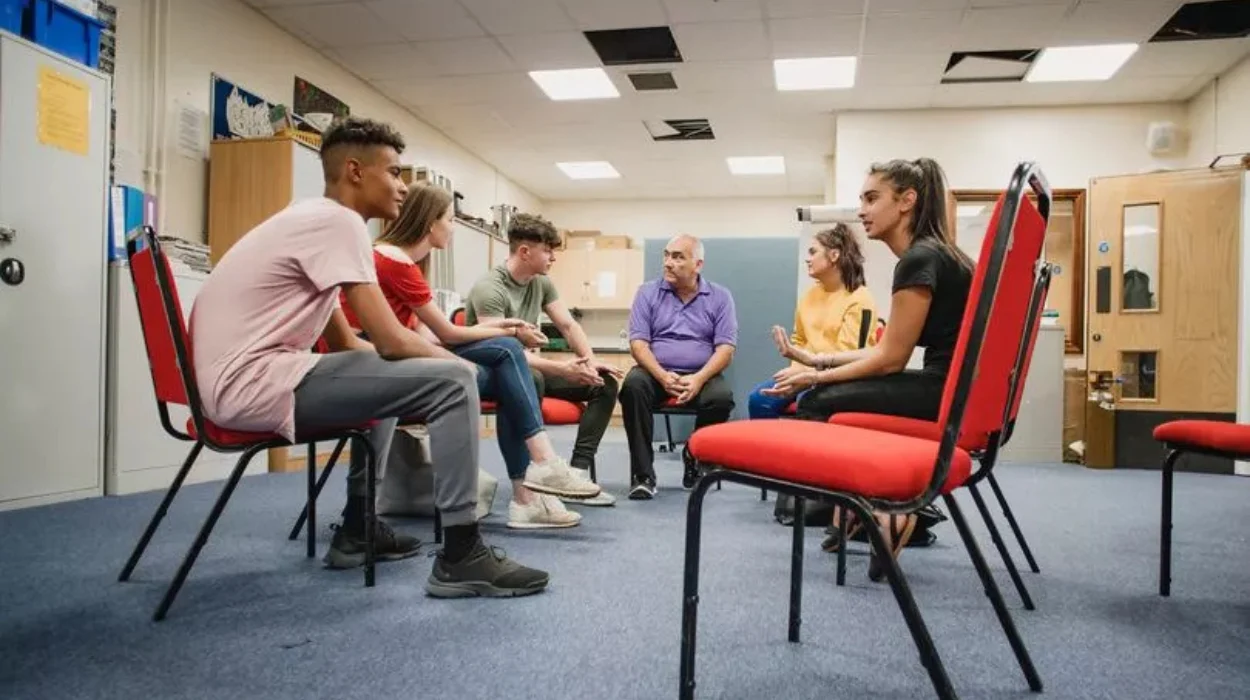Croydon (Parliament Politics Magazine) – A Croydon MP has condemned the council for failing to consult the public on proposed cuts to youth engagement programmes, raising concern over transparency.
As reported by My London, as an ‘insult’ to the young people and families who rely on them, the absence of public input in Croydon Council’s proposed youth service cuts has been criticized by an MP. Natasha Irons, the MP for Croydon East, claimed that the council’s strategy excluded the very voices that ought to have been heard.
Young people who live, work, or attend school in Croydon, as well as their families, can receive the support and education services they require from the Council’s Youth Engagement Team (YET).
The team provides dependable, locally focused support by serving as a liaison between the council, nonprofits, and youth.
However, many parents and young people who depend on the services around the borough are concerned about Croydon’s proposals to cut this provision. Claims that Council representatives have not adequately interacted with the service consumers have exacerbated the situation.
Through a weekly youth center in New Addington, the YET provides support to youth in Croydon. Charlene is a New Addington parent.
She expressed doubts about the council’s consultation process and whether it accurately represented the opinions of young people.
She said,
“Two middle-aged white ladies came to the youth club. They didn’t ask things in a way that gave [my son] the opportunity to express what he really felt.”
Charlene described the New Addington youth club as essential to her children’s development outside the home. She added:
“My children are learning to be resilient, how to deal with difficult conversations, and how to manage conflict with others.”
She added:
“The staff do such a good job at making everything seem conversational and natural. That’s what makes the team so phenomenal at what it does and why it’s so popular with the children.”
The council’s focus on saving £700,000 a year while spending millions on consultants and suggesting a pay increase for the part-time mayor is criticized.
This has been interpreted as putting cost-cutting ahead of youth safety and wellness.
After the previous Labour Council decided to cut fundamental financing for the YET in March 2022, the council started internal staff discussions in December 2024. No formal notice inviting families or residents to participate was issued, despite pleas for a public consultation.
Irons demanded more community participation, but was informed that the consultation was already over. Only with the assistance of a local charity that gathered and submitted their opinions were some families able to offer input.
Irons said in a statement,
“The council’s failure to conduct a proper public consultation on the future of its youth engagement team is an insult to the young people, families, and voluntary organisations that rely on it for support and early intervention.”
She added that Croydon deserves a transparent public consultation process, not this backdoor approach, which leaves them with more questions than answers.
The report due to be published by the council this month must clearly outline how it plans to protect youth services in areas like New Addington and ensure that young people across Croydon have access to the support and resources they deserve.
Irons continued.
“I firmly believe that without a proper public consultation, Croydon Council risks losing the specialist knowledge of its youth engagement team and, ultimately, failing Croydon’s young people.”
Members of the Croydon Youth Assembly (CYA), a youth campaigning and engagement group, who are likewise uncertain about their future were interviewed by the Local Democracy Reporting Service (LDRS) earlier this year.
At the time, CYA member Johan Prinsloo told the LDRS:
“If there was a place that you should not take the youth services from, it would be Croydon.”
Despite this, Croydon Council has stated that when the present funding expires in March 2025, it intends to refocus the service to assist individuals who are most in need.
A Croydon Council spokesperson told the LDRS:
“We are seeking to change the service to maximise help and support for the young people who need it most and in the most effective way.”
According to the council, during the evaluation process, it conferred with employees, parents, schools, youth, and partners in the nonprofit sector.
“The consultation started on 5 December and was extended to give further opportunities for comments and questions,”
the spokesperson added.
Additionally, Croydon emphasized its broader involvement in adolescent services, which included £271,000 in funding from the Violence Reduction Unit in 2023. An additional £200,000 has been allocated for 2025–2026 to help local community organizations with youth outreach and mentorship.
The upcoming scrutiny meeting on May 13 will cover the council’s consultation report. Residents are being urged to voice their concerns over Croydon’s youth engagement in the future by getting in touch with the council.
What are the main arguments against the proposed cuts to the youth engagement team in Croydon?
The Croydon Youth Assembly and opposition council members were not included in the little public or stakeholder input that preceded the decision to eliminate the youth engagement team. Good governance and community trust are undermined by the “stealthy” procedure, which lacks formal examination and comprehensive reporting to the council cabinet.
Over 7,000 young people are currently supported by the youth engagement team, including those who may be at danger of engaging in criminal activity or engaging in antisocial behavior.
Reducing the team could have “catastrophic” effects by depriving critical support, escalating juvenile criminality, and placing an excessive demand on other agencies such as youth justice and social care.
The council intends to substitute lesser funding to outside voluntary organizations—many of which would lack the necessary training and be exempt from the standards.


